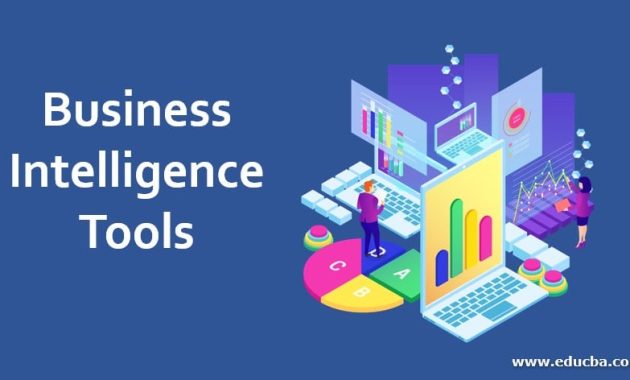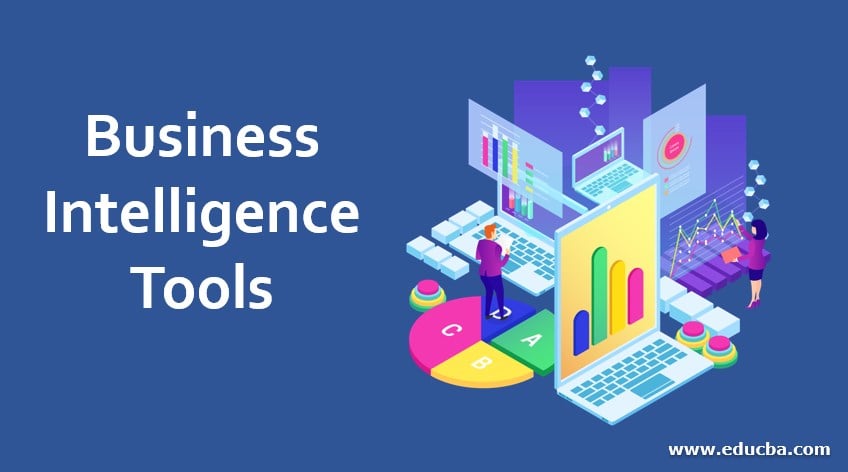
Beginner’s Guide to 15 Business Intelligence Tools: Stay Ahead in the Game
In today’s data-driven world, businesses are constantly seeking ways to gain a competitive edge. One of the most effective strategies is leveraging the power of Business Intelligence (BI) tools. These tools transform raw data into actionable insights, enabling informed decision-making and strategic planning. This beginner’s guide will explore 15 essential business intelligence tools, providing a comprehensive overview to help you stay competitive. We’ll delve into their functionalities, benefits, and how they can be implemented to drive success. Understanding these tools is crucial for any business aiming to thrive in the modern market.
What is Business Intelligence?
Business Intelligence (BI) refers to the technologies, applications, and practices used to collect, integrate, analyze, and present business information. The primary goal of BI is to support better business decisions. It transforms raw data into meaningful, understandable information. This information helps businesses identify trends, predict future outcomes, and optimize their operations. BI empowers organizations to make data-driven decisions rather than relying on gut feelings.
Why are BI Tools Important?
BI tools provide several crucial benefits. They enhance decision-making by providing clear, concise insights. They improve operational efficiency by identifying areas for optimization. They also enable better customer understanding through data analysis. Furthermore, BI tools facilitate strategic planning and forecasting. By using these tools, businesses can react quickly to changing market conditions. They can also anticipate future trends and gain a significant competitive advantage. Implementing business intelligence is no longer a luxury; it is a necessity.
Key Features of Effective BI Tools
Effective BI tools share several key features. They should be able to integrate with various data sources. They should offer robust data analysis capabilities. They should also have intuitive dashboards and reporting features. Data visualization is another crucial aspect. The tools should also provide data security and governance features. Finally, ease of use and scalability are important factors to consider. Choosing a BI tool depends on specific business needs and objectives. Considering these features will help in selecting the right tools.
Top 15 Business Intelligence Tools for Beginners
The following list presents 15 business intelligence tools suitable for beginners. Each tool offers unique features and functionalities. These tools are chosen for their ease of use, popularity, and comprehensive capabilities. They cover a range of needs, from data visualization to advanced analytics. This list will help you navigate the vast landscape of BI tools.
Tableau
Tableau is a leading data visualization tool known for its user-friendly interface. It allows users to create interactive dashboards and reports. Tableau integrates with many data sources. It offers powerful data analysis capabilities. It is a great choice for beginners due to its intuitive design. [See also: How to Create Effective Data Visualizations with Tableau]
Microsoft Power BI
Microsoft Power BI is a comprehensive BI tool offered by Microsoft. It integrates seamlessly with other Microsoft products. Power BI offers a wide range of data visualization options. It also provides robust data analysis and reporting features. It is an excellent option for businesses already using the Microsoft ecosystem. Microsoft Power BI is a strong contender in the business intelligence space.
Qlik Sense
Qlik Sense is a self-service BI tool focused on data discovery. It uses an associative data model. This allows users to explore data in a flexible way. Qlik Sense offers advanced analytics features. It is ideal for users who want to explore data freely. Qlik Sense also includes strong data governance capabilities.
Looker
Looker is a modern BI platform designed for data-driven organizations. It emphasizes data modeling and governance. Looker offers advanced analytics and reporting features. It is well-suited for large enterprises. Looker is part of the Google Cloud Platform.
Sisense
Sisense is a BI platform focused on ease of use and speed. It allows users to build and share dashboards quickly. Sisense is known for its in-memory data processing. This results in fast performance. Sisense is a good choice for businesses that need quick insights.
Domo
Domo is a cloud-based BI platform designed for collaboration. It offers real-time data visualization and reporting. Domo is easy to use and offers a wide range of integrations. It is ideal for teams who need to share insights across the organization. Domo is a powerful business intelligence tool.
Zoho Analytics
Zoho Analytics is a self-service BI and data analytics software. It is known for its ease of use and affordability. Zoho Analytics integrates with various data sources. It offers a wide range of data visualization options. It is a great option for small to medium-sized businesses. This is a strong business intelligence offering.
ThoughtSpot
ThoughtSpot is a search-driven analytics platform. Users can ask questions in natural language. The tool provides instant insights. ThoughtSpot simplifies data exploration. It is a good choice for non-technical users. ThoughtSpot is a modern business intelligence solution.
MicroStrategy
MicroStrategy is an enterprise BI platform. It offers a wide range of features. It is known for its scalability and security. MicroStrategy supports advanced analytics. It is suitable for large organizations with complex needs. It is a comprehensive business intelligence solution.
SAS Business Intelligence
SAS BI is a comprehensive BI solution developed by SAS Institute. It provides advanced analytics capabilities. It is often used in large enterprises. SAS BI is known for its data mining and statistical analysis features. It is a powerful tool for data-intensive tasks.
SAP Analytics Cloud
SAP Analytics Cloud is a cloud-based BI platform. It offers planning, predictive analytics, and business intelligence. SAP Analytics Cloud integrates with other SAP products. It is a good choice for organizations using SAP systems. It is a crucial business intelligence solution.
GoodData
GoodData is a cloud-based BI platform focused on data governance. It offers strong data security features. GoodData enables collaboration and data sharing. It is a suitable option for businesses with strict data compliance requirements. It is a solid business intelligence option.
Board
Board is a unified BI and CPM (Corporate Performance Management) platform. It combines data analysis with planning and forecasting. Board offers a comprehensive solution for business decision-making. It is a good choice for organizations seeking integrated solutions. Board is a powerful business intelligence and planning tool.
Yellowfin
Yellowfin is a BI platform focused on user-friendly dashboards. It is known for its ease of use and data storytelling capabilities. Yellowfin offers data visualization and collaboration features. It is suitable for businesses that want to communicate insights effectively. It is a user-friendly business intelligence tool.
Birst
Birst is a cloud-based BI platform that specializes in networked BI. This tool allows for a decentralized approach to data analysis. Birst offers strong data governance features. It is ideal for organizations with complex data environments. Birst is a well-regarded business intelligence solution.
How to Choose the Right BI Tool
Choosing the right business intelligence tool depends on several factors. Assess your business needs and objectives. Consider the size and complexity of your data. Evaluate your budget and technical capabilities. Consider ease of use and integration capabilities. Look for scalability and future-proofing. Research and compare different tools. Test the tools before making a final decision. Choosing the right tool is critical for success. It will help you maximize the benefits of business intelligence. [See also: Key Considerations When Selecting a BI Tool]
Implementing BI Tools Effectively
Implementing BI tools effectively requires a strategic approach. Start with a clear plan and defined goals. Identify your key performance indicators (KPIs). Select the right data sources and integrate them. Train your team on the chosen BI tool. Develop insightful dashboards and reports. Regularly analyze and refine your BI implementation. Encourage data-driven decision-making across the organization. Effective implementation ensures you get the most value from your BI investment. This will help you stay competitive.
The Future of Business Intelligence
The future of business intelligence is promising. Emerging trends include the rise of artificial intelligence (AI) and machine learning (ML). These technologies will automate data analysis and provide deeper insights. Self-service BI will continue to grow in popularity. Data democratization will become even more important. Cloud-based BI solutions will become more prevalent. The integration of BI with other technologies will continue. Staying informed about these trends is crucial. This will ensure businesses remain competitive. The future of business intelligence offers exciting possibilities.
Conclusion
This beginner’s guide has explored 15 business intelligence tools. It has also highlighted the importance of BI for staying competitive. Understanding these tools and their capabilities is essential. Businesses must embrace data-driven decision-making. By implementing the right BI tools, businesses can unlock valuable insights. They can improve their performance and achieve their strategic goals. The journey to becoming a data-driven organization starts here. Utilizing business intelligence tools is key to success. Staying ahead in the game requires informed choices.

